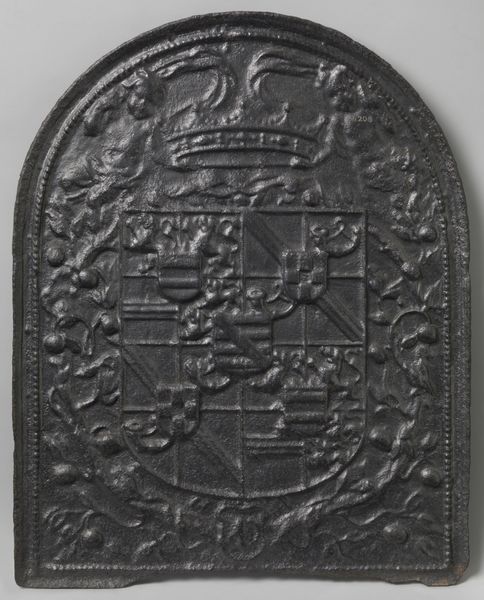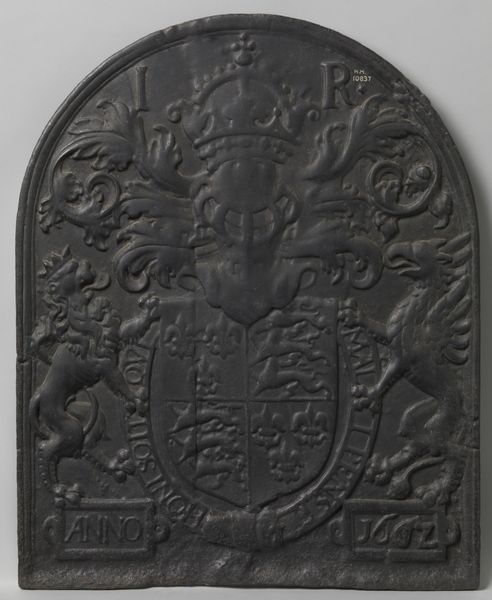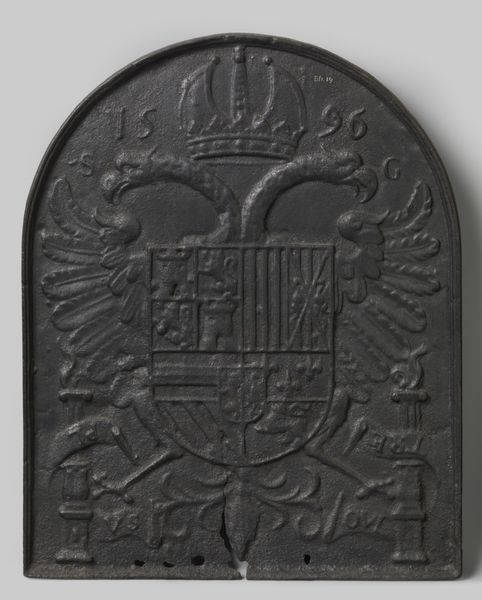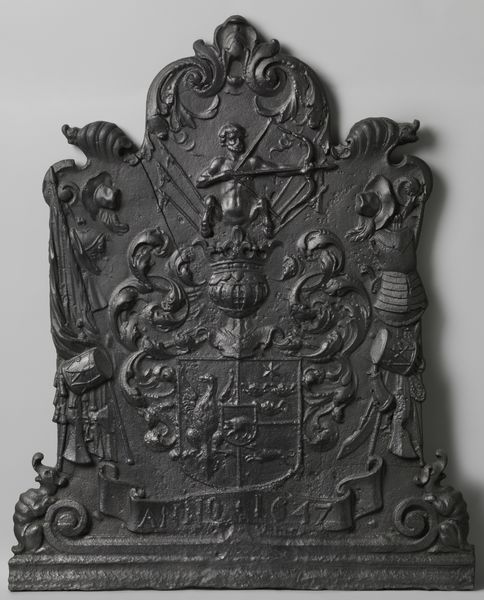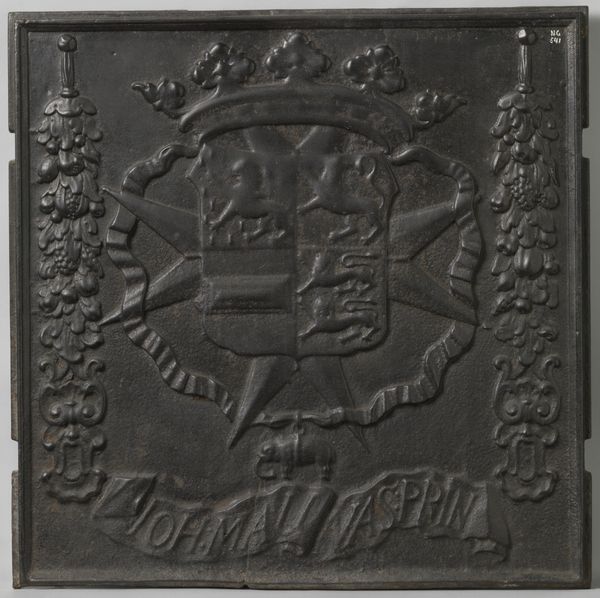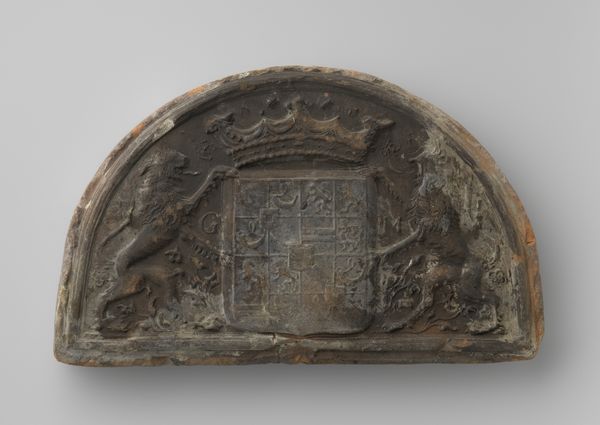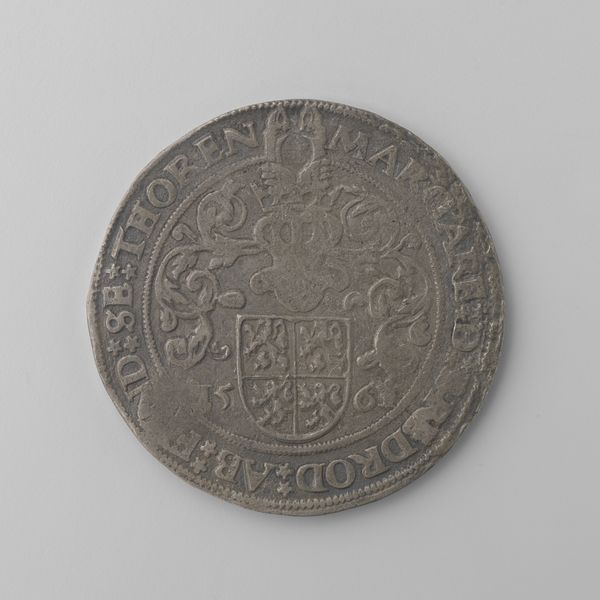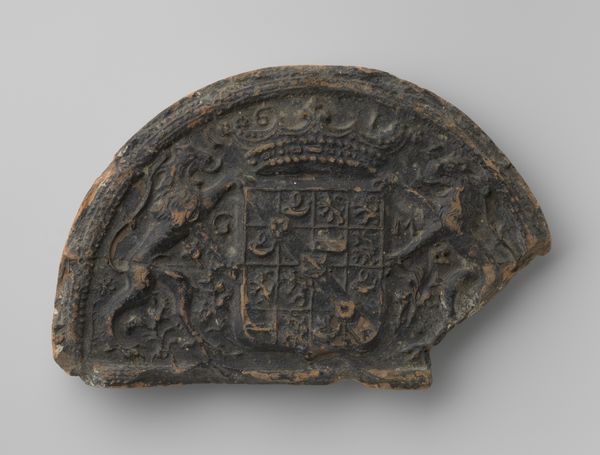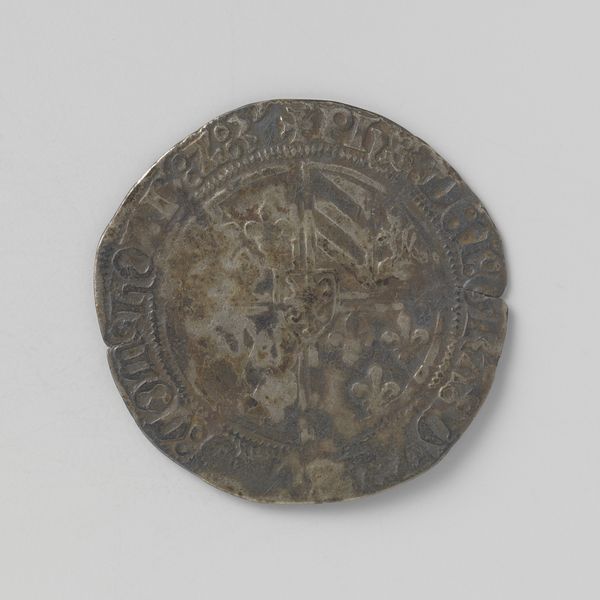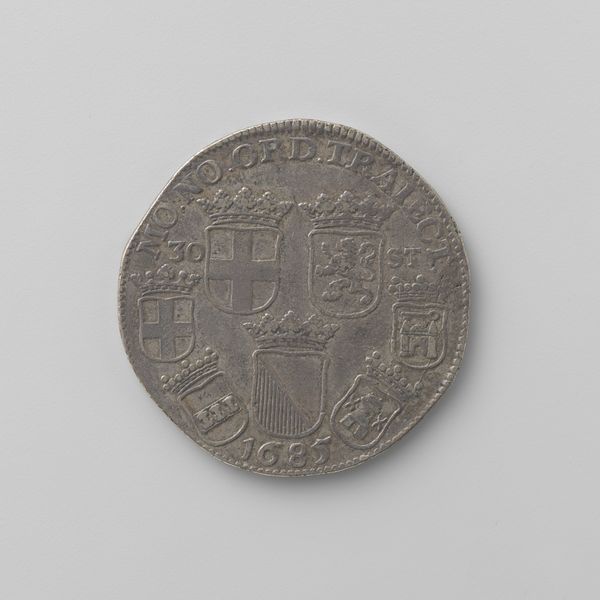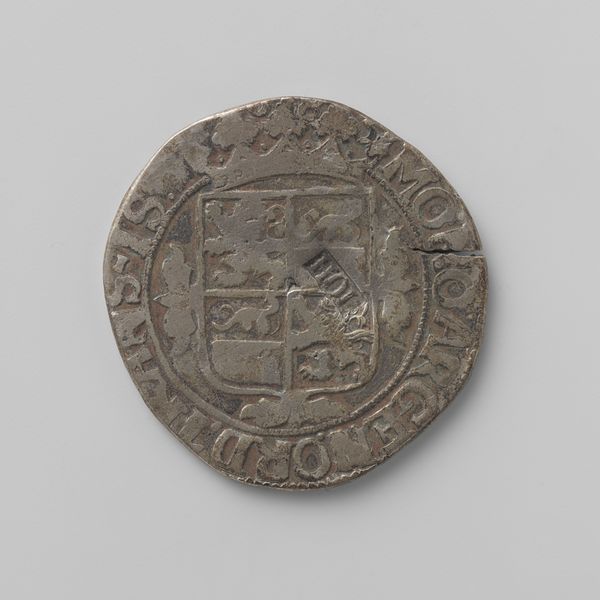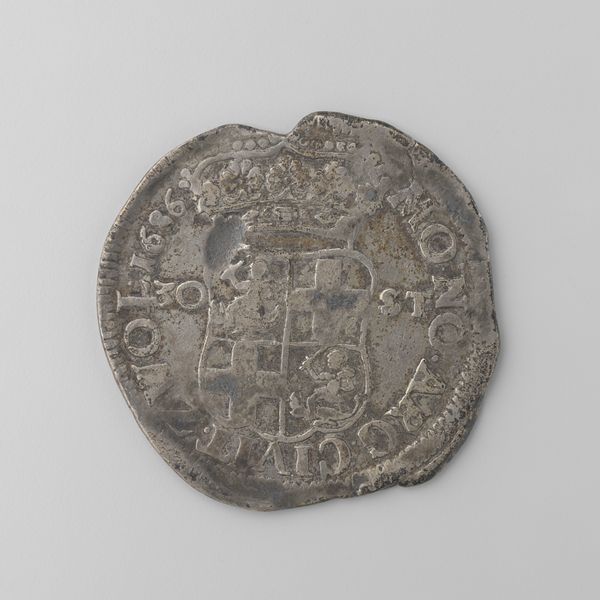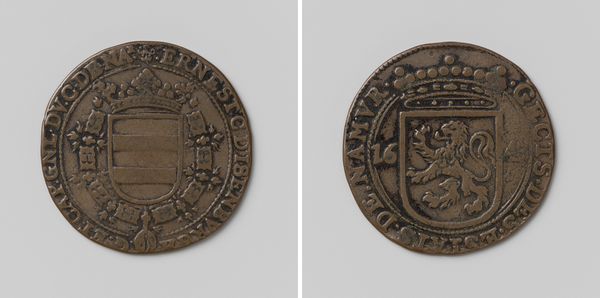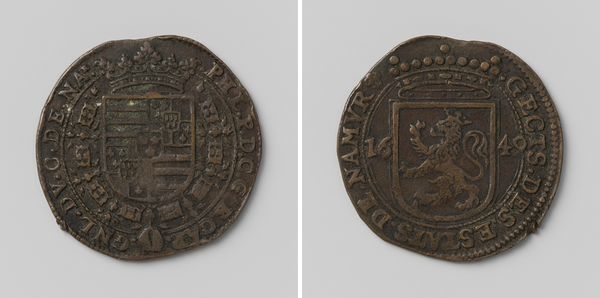
Haardplaat met het wapen van Filips II omgeven door de wapens van de Zeventien Proviniciën after 1592
0:00
0:00
anonymous
Rijksmuseum
metal, relief, sculpture
#
baroque
#
metal
#
stone
#
sculpture
#
relief
#
sculpture
Dimensions: height 74.0 cm, width 61.0 cm, weight 28 kg
Copyright: Rijks Museum: Open Domain
This cast iron fireback, made in 1592 by an anonymous maker, shows the coat of arms of Philip II, surrounded by the arms of the Seventeen Provinces. The fireback's substantial weight of 28kg speaks to the industrial processes involved. Iron casting was a laborious activity, involving mining ore, smelting it in furnaces, and then pouring the molten metal into sand molds. The work was divided among many hands, from the wealthy mine-owners to the laborers who extracted the raw materials. The iron itself, with its inherent qualities of durability and heat resistance, was well-suited for its utilitarian purpose. Yet the choice of such a base material also imbued the fireback with social significance. While the heraldic imagery asserts power, the iron material speaks to the labor and resources necessary to maintain it. Appreciating this fireback involves understanding not only the artistry of its design but also the industrial processes and social dynamics that brought it into being, challenging traditional distinctions between art and craft.
Comments
No comments
Be the first to comment and join the conversation on the ultimate creative platform.
